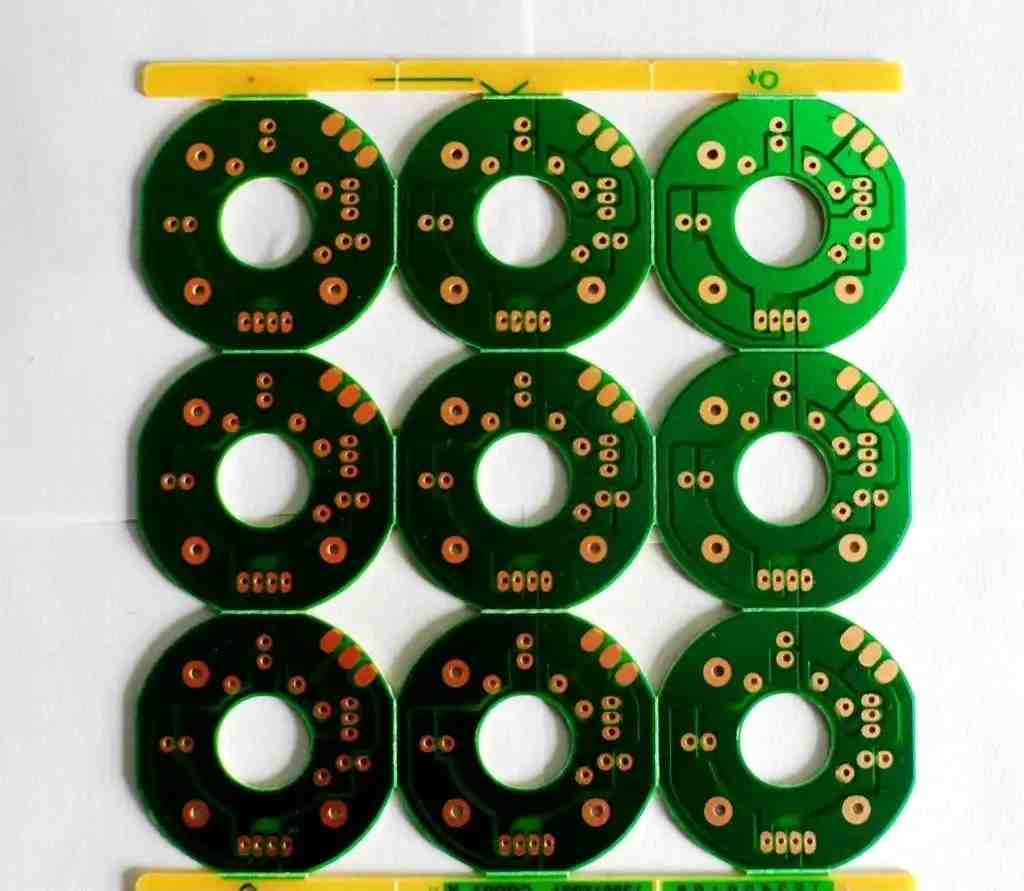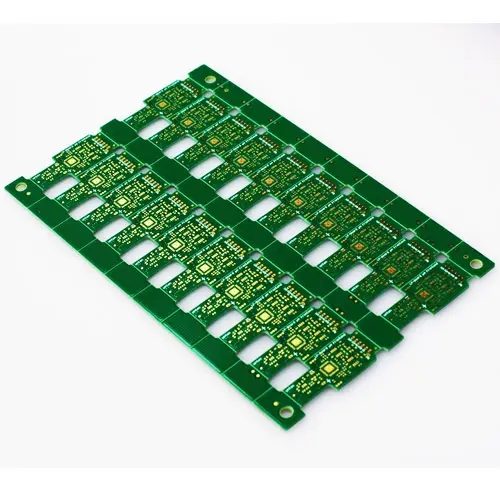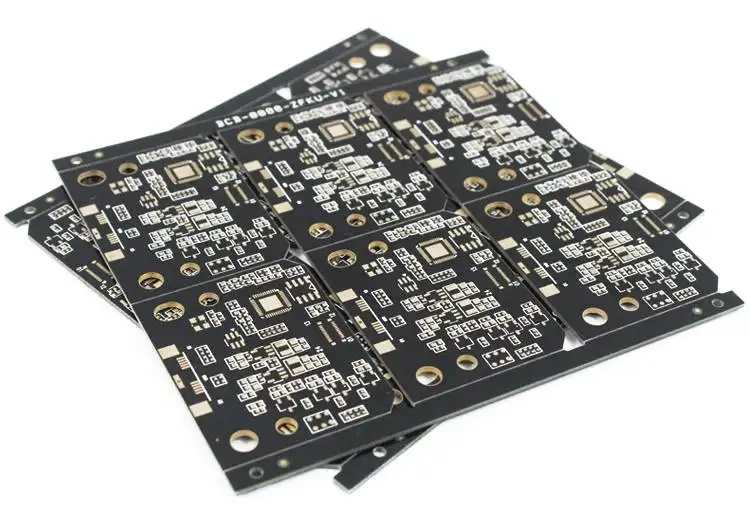
Impedance matching and 0 ohm resistance in PCB Layout
1. Impedance matching refers to an appropriate matching mode between signal source or transmission line and load. According to the access mode, there are two impedance matching modes: serial and parallel; According to the frequency impedance matching of signal source, it can be divided into low frequency and high frequency.
(1) High frequency signals generally use serial impedance matching. The resistance value of the serial resistance is 20~75 Ω, which is proportional to the signal frequency and inversely proportional to the PCB wiring width. In embedded systems, generally, when the frequency of signals is greater than 20M and the PCB wiring length is greater than 5cm, serial matching resistors should be added, such as clock signals, data and address bus signals in the system. The serial matching resistor has two functions:
◆ Reduce high-frequency noise and edge overshoot. If the edge of a signal is very steep, it contains a lot of high-frequency components, which will radiate interference. In addition, it is easy to produce overshoot. The series resistance, the distributed capacitance of the signal line and the load input capacitance form an RC circuit, which will reduce the steepness of the signal edge.

◆ Reduce high-frequency reflection and self-excited oscillation. When the frequency of the signal is very high, the wavelength of the signal is very short. When the wavelength is short enough to match the length of the transmission line, the shape of the original signal will be changed when the reflected signal is superimposed on the original signal. If the characteristic impedance of the transmission line is not equal to the load impedance (that is, it does not match), reflection will occur at the load end, causing self-excited oscillation. The low-frequency signal of the wiring in the PCB board can be directly connected, and it is generally unnecessary to add a serial matching resistor.
(2) Parallel impedance matching is also called "terminal impedance matching". It is generally used at the input/output interface, mainly referring to the impedance matching with the transmission cable. For example, LVDS and RS422/485 use Category 5 twisted pair input terminal matching resistance of 100~120 Ω; The matching resistance of coaxial cable used for video signal is 75 Ω or 50 Ω, and that of flat cable used is 300 Ω. The resistance value of the parallel matching resistance is related to the medium of the transmission cable, not the length. Its main function is to prevent signal reflection and reduce self-excited oscillation.
It is worth mentioning that impedance matching can improve the EMI performance of the system. In addition, in order to solve impedance matching, in addition to using series/parallel resistors, transformers can also be used for impedance transformation, such as Ethernet interface, CAN bus, etc.
2. Function of 0 ohm resistance
(1) The simplest is to use it as a jumper. If a section of line is not used, the resistance can be directly not welded (without affecting the appearance).
(2) When the parameters of the matching circuit are uncertain, 0 ohm shall be used instead. During actual debugging, the parameters shall be determined, and then the components with specific values shall be used instead.
(3) When you want to measure the working current of a part of the circuit, you can remove the 0 ohm resistance and connect the ammeter to facilitate the current measurement.
(4) When wiring, if it is really impossible to connect the wires, you can also add a 0 ohm resistance for bridging.
(5) In the high-frequency signal network, it acts as an inductor or capacitor (for impedance matching, a 0 ohm resistor also has impedance!). It is mainly used to solve EMC problems when acting as an inductor.
(6) Single point grounding, such as the common grounding of analog grounding and digital grounding.
(7) The configuration circuit can replace the jumper and dial switch. Sometimes the user will move the settings randomly, which is easy to cause misunderstanding. In order to reduce maintenance costs, 0 ohm resistance is used to replace jumpers and other welding on the board.
(8) For system commissioning, for example, the system is divided into several modules, and the power supply between modules is separated from the ground by a 0 ohm resistance. When a power or ground short circuit is found during commissioning, the 0 ohm resistance can be removed to narrow the search range.
The above functions can also be replaced by "magnetic beads". Although the function of 0 ohm resistance is somewhat similar to that of magnetic bead, there are essential differences. The former is impedance characteristic, and the latter is inductive impedance characteristic. The magnetic bead is generally used in the power and ground network and has the function of filtering. The circuit board designer and the circuit board processor explain the impedance matching and 0 ohm resistance in PCB Layout.







